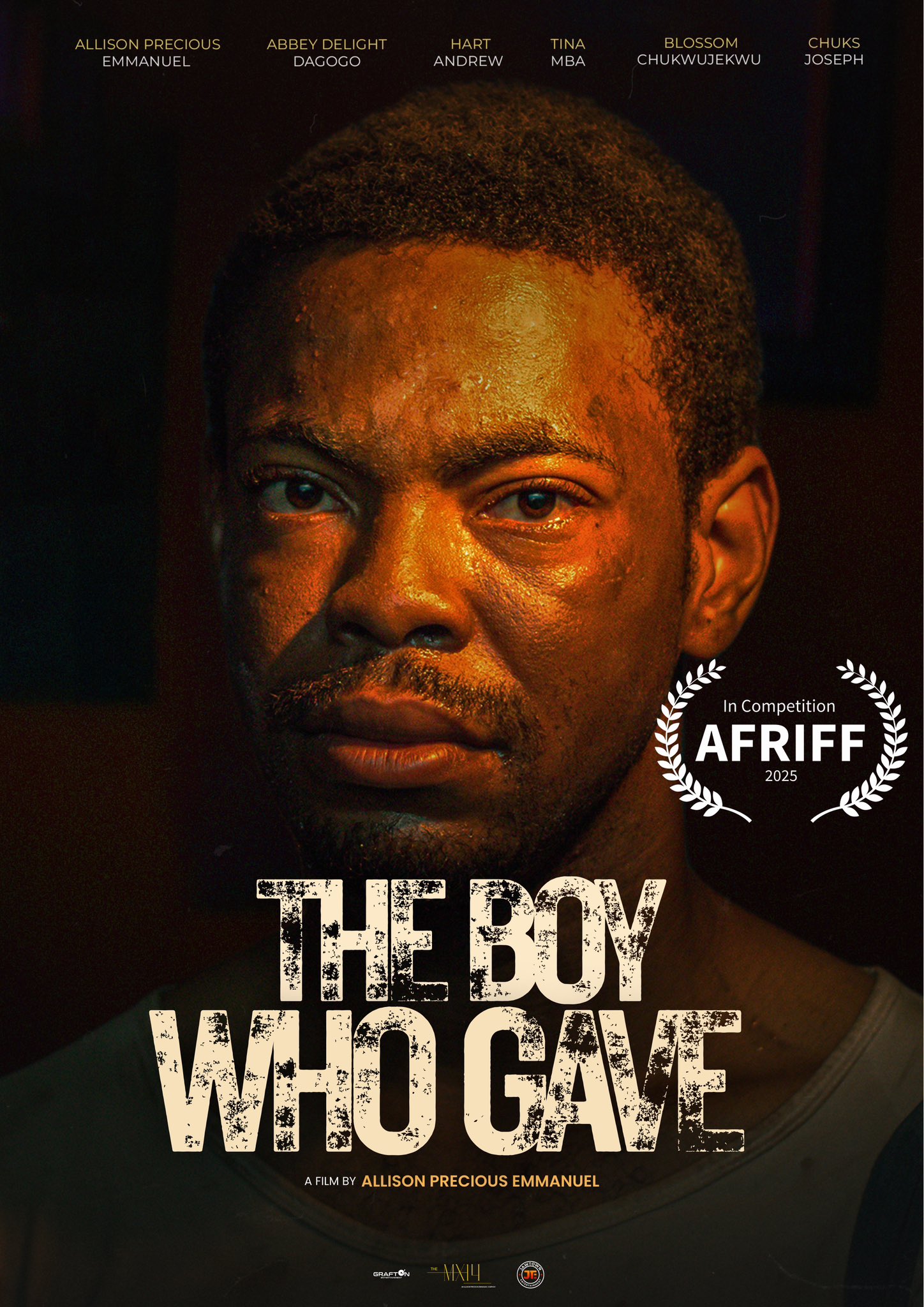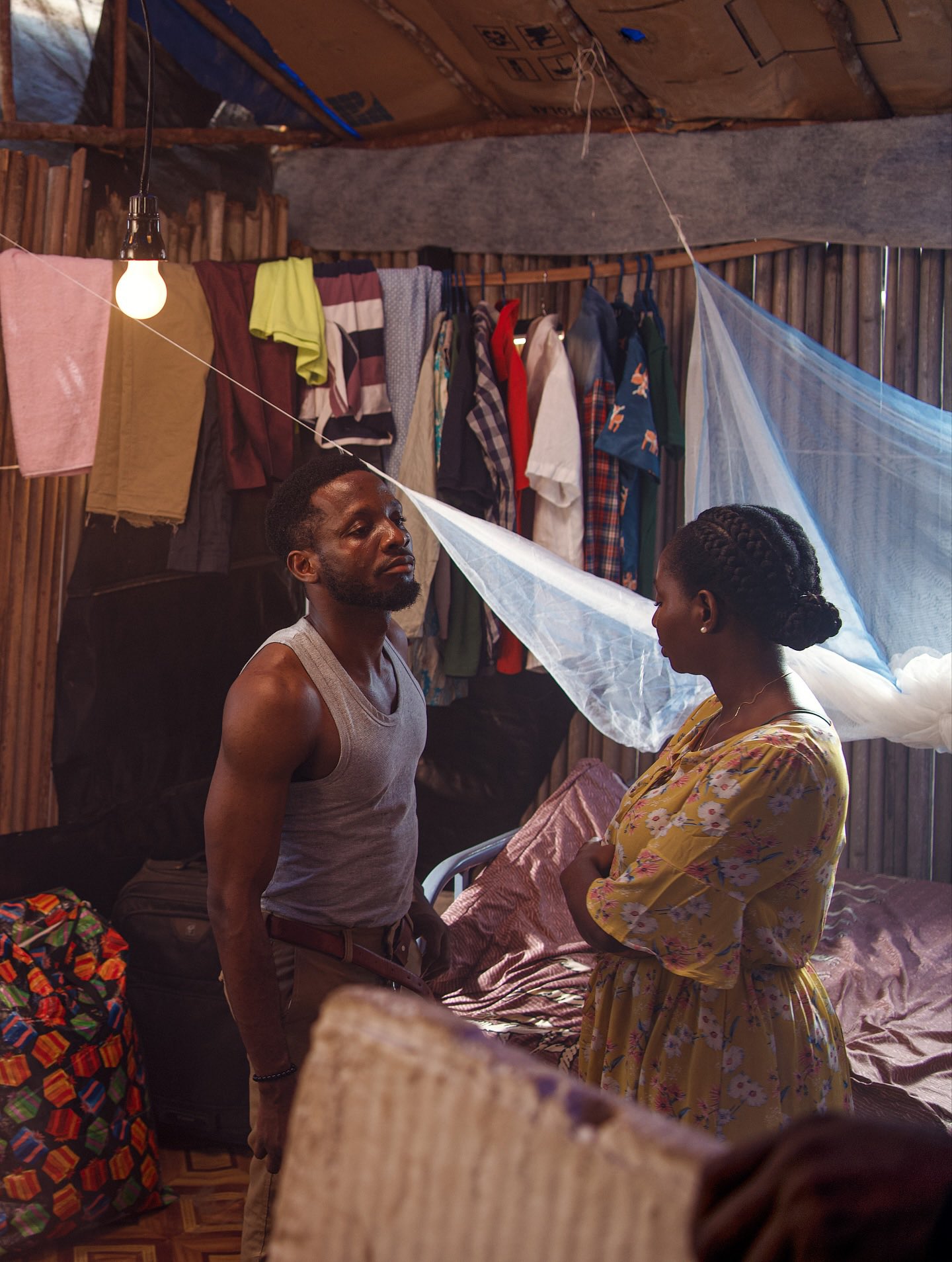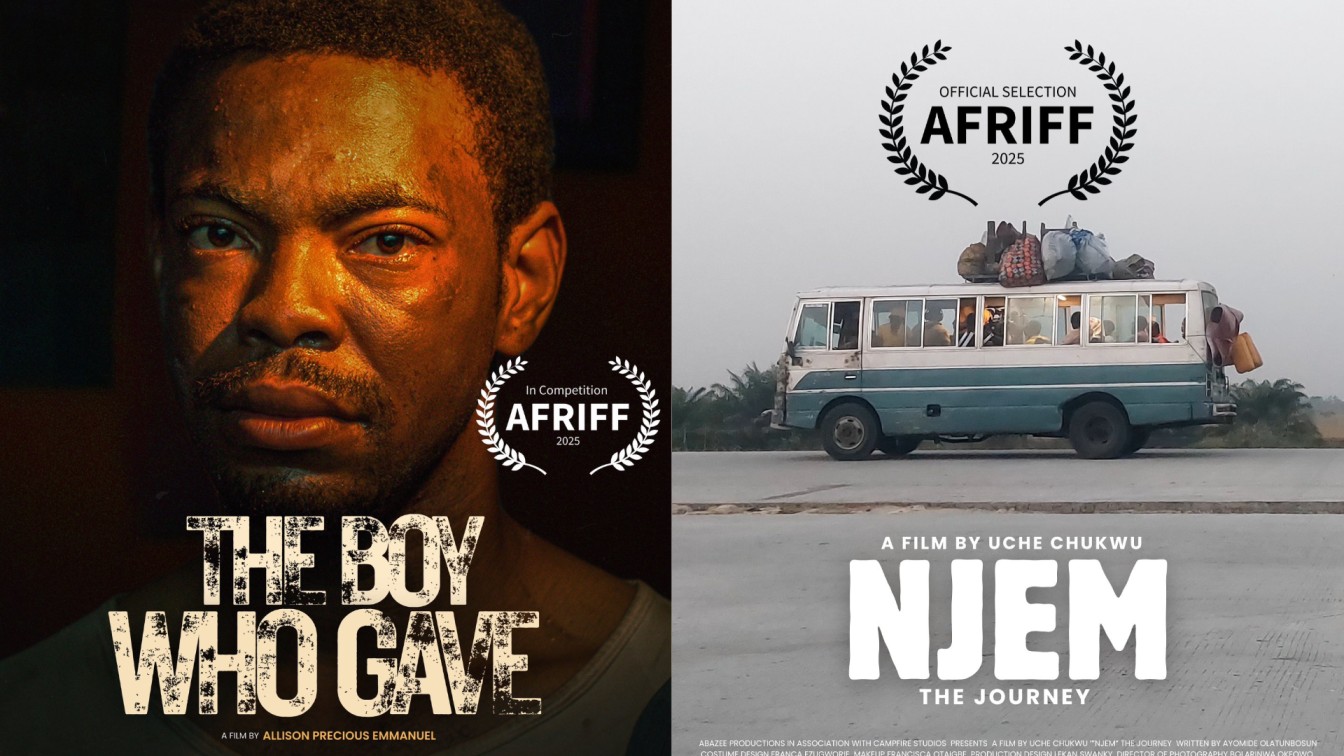Take away the spectacle of suffering from Njem or The Boy Who Gave, and frankly, there is not much left to hold on to.
By Vivian Nneka Nwajiaku
Capturing poverty in film is a tricky endeavour. When does a filmmaker cross the line between an honest portrayal of suffering and the oft-criticised territory of trauma porn? It is not always easy to tell, and many times, emotional manipulation can be mistaken for poignant contemplation.
In Nigeria, regarded by many as the poverty capital of the world, navigating that line remains a challenge, exemplified by two Nollywood films at this year’s Africa International Film Festival (AFRIFF), Uche Chukwu’s Njem: The Journey (2025) and Allison Precious Emmanuel’s The Boy Who Gave (2025).
Both films are carried by two of Nollywood’s young rising stars. Njem stars Africa Magic Viewers’ Choice Awards 2024 Trailblazer, Chimezie Imo, as Ochuko, a first class graduate desperate to make it out of Nigeria but stuck in a riverine shanty town riddled with poverty. The more Ochuko tries to leave the country, the less likely success seems, the more risks his extremely loyal girlfriend, Cynthia (Goodness Emmanuel), has to take, and the more third parties suffer repercussions.
On the part of The Boy who Gave, set in Bonny Island, a coastal town in Rivers State, writer-director Allison Precious Emmanuel leads the cast as Idah (everyone calls him “Broda”), the very literal boy who gave. When his parents (Blossom Chukwujekwu plays his father) pass away tragically, and relatives either turn them away or accept them with abusive conditions, Idah is forced to drop out of secondary school and take responsibility for his younger siblings, Priye (Abbey Delight Dagogo) and D-Boy (Hart Andrew).

In both films, there is a human villain. For Ochuko and his girlfriend, it is Don Vasco (Kelechi Udegbe), a local landlord, loan shark, and drug dealer to whom Ochuko is perpetually indebted. And for Idah and his siblings, it is Uncle Opuada (Ugochukwu Nwachukwu), their mean-spirited uncle who pops up with bad news at every momentous time in their lives. But the true enemy is poverty and the unending suffering it triggers for the characters in each film.
Njem and The Boy Who Gave frame their intended socio-political arguments around poverty and the accompanying lack of access. It is the reason that a teenage boy cannot stay in school and a well-educated young man cannot leave the slum; the reason a woman’s family would look down on the man she loves; and the reason a female character would sacrifice her body or be exposed to graphic sexual violence.
Even The Boy Who Gave, which attempts a critique of the responsibilities placed on older children and the erasure of their identities outside of their fulfillment of those roles, ends up prioritising the theme of poverty and suffering, evident in a closing monologue delivered by Idah, a documentary-style final scene around D-boy’s character—an unnecessary addition to an already unnecessary documentary-style format—and a postscript that emphasise that some people just have suffering as their destinies.
Of course, the issue is not with the fact that these films explore concerns around poverty. The problem is how they carry out that exploration. In both cases, and especially in The Boy Who Gave, everything onscreen is manifestly engineered to manipulate viewers’ emotions. Characters are little more than the actions that their financial circumstances compel them to take, and those circumstances are themselves overflogged yet underexplored.

It’s in times like this that filmmakers argue realism—an argument they are quick to jettison, in favour of creative licence, when unrealistic events play out in their films—but it hardly seems realistic that a human being will never have even a moment of joy in their life unless that joy specifically exists as an avenue for or a byproduct of sorrow.
If Idah falls in love, it is not because The Boy Who Gave is interested in him falling in love or having a full life, but because that love has to result in a dressing down and a reminder to the audience of how bad he has it in life. If one of Idah’s siblings accomplishes a feat, it is not because it influences the character in any way, but because it has to trigger further suffering for Idah and his siblings. And if Idah will find a friend—as he does with Ikenna (played by Chuks Joseph)—it must first be a battle, literally.
At least, The Boy Who Gave succeeds in its bid to tug at emotions. It is, indeed, a tearjerker and a distressing ride, under the confident and showy hands of an ambitious writer-director—this is Emmanuel’s feature debut—who uses everything at his disposal, both the technical elements (from score and soundtrack to the lighting and colouring) and the story choices, to trigger the reactions he demands. Because bad things seem to be happening to seemingly selfless characters who are working to help one another escape their situation, it is considerably easier to root for and sympathise with them.
Njem achieves the opposite, with story choices so infuriating and characters so unlikeable that their misfortune seems justified. Why would anybody care about Ochuko’s continued lamentations about his inability to get a job when he seems to be waiting for manna from heaven while his girlfriend consistently puts herself in harm’s way to secure his future? Why would anybody root for the girlfriend when she, without hesitation, risks the safety of others, including her sister (Tomi Ojo), for a man the audience barely cares about? And why would anyone be invested in such a sister when she spends the entire film being condescending and hypocritical?

The one completely positive thing both films have going for them is the performances of their leads and their supporting actors with long-standing careers. With The Boy Who Gave, Allison Precious Emmanuel makes a strong case for himself as an actor to watch. In Njem, Chimezie Imo remains capable, despite the material. Blossom Chukwujekwu delivers a memorable performance in The Boy Who Gave, and so does Kelechi Udegbe in Njem. And in both films, the reliable Tina Mba keeps things grounded as a mother figure for the lead characters.
Ultimately, The Boy Who Gave is the more interesting of both films, though Njem is the grittier. But they both end with clumsy and dragged out third acts, employ sexual violence as a plot device, and seem more fascinated by the idea and circumstance of poverty than they are interested in the humanity of those who experience poverty. Take away the spectacle of suffering from Njem or The Boy Who Gave, and frankly, there is not much left to hold on to.
Ratings:
Njem: The Journey: 2.3/5
The Boy Who Gave: 2.8/5
* Njem: The Journey and The Boy Who Gave premiered at the Africa International Film Festival (AFRIFF) 2025.
Vivian Nneka Nwajiaku is a writer, film critic, TV lover, and occasional storyteller writing from Lagos. She has a master’s degree in law but spends most of her time watching, reading about and discussing films and TV shows. She’s particularly concerned about what art has to say about society’s relationship with women. Connect with her on X @Nneka_Viv




